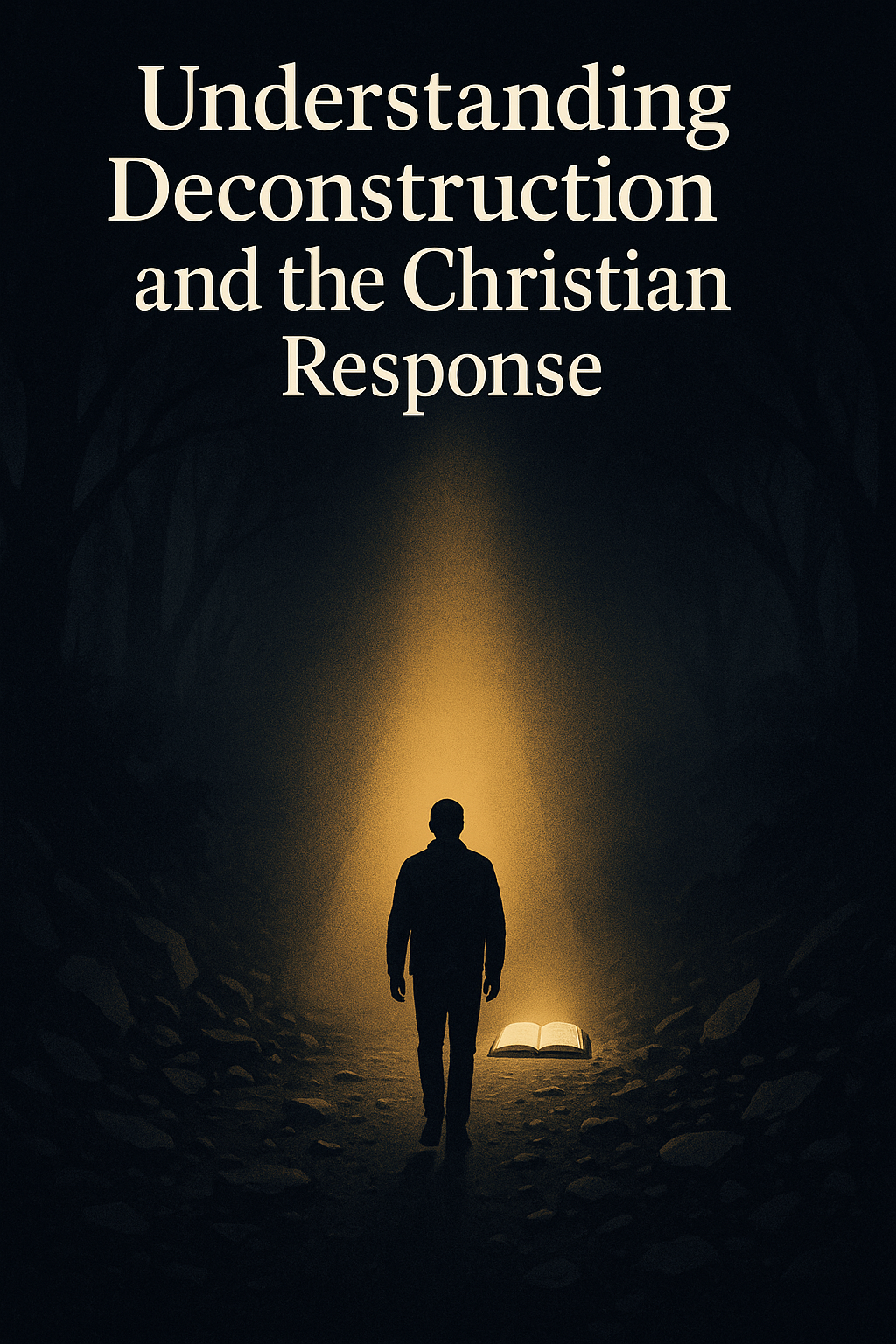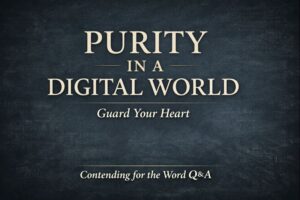⏱️ Estimated Reading Time: 3 min read
Understanding Deconstruction and the Christian Response
Series: Contending for the Word Q&A, Date: September 17, 2025
Question: What is deconstruction, and how should Christians address it?
Introduction
Deconstruction has become an increasingly common word in recent years. Many people, often raised in Christian homes or churches, use it to describe questioning, doubting, or even tearing down the faith they once professed.
What does deconstruction really mean? Is it simply asking honest questions, or is it something more dangerous? Most importantly, how should Christians respond when friends, family members, or even we ourselves wrestle with doubt and deconstruction?
Defining Deconstruction
In today’s culture, deconstruction often means dismantling one’s Christian beliefs, usually influenced by skepticism, personal hurt, or cultural pressure. It can look like:
- Questioning the authority of Scripture,
- Doubting core doctrines such as the Trinity, the atonement, or biblical sexuality,
- Walking away from the church, or redefining Christianity to fit personal preferences.
This problem is not new. From the serpent’s words in Genesis 3, “Did God really say,” to the warnings about false teachers in the New Testament, Satan has always sought to undermine God’s truth.
A Biblical Framework
While the Bible does not use the word deconstruction, it speaks clearly about testing our faith and the dangers of falling away.
- 2 Corinthians 13:5: “Examine yourselves, to see whether you are in the faith.” Honest self-examination is biblical.
- Jude 3–4: Believers are called to contend for the faith because some distort it.
- Hebrews 3:12–13: Scripture warns against an unbelieving heart that turns away from the living God.
The key distinction is this: biblical self-examination drives us back to Christ and His Word, while cultural deconstruction often drives people away from Him.
How Should Christians Address It?
- Listen with compassion. Many who deconstruct carry real wounds from spiritual abuse, hypocrisy, or unanswered questions. Listening well reflects Christlike patience
(James 1:19). - Point to God’s Word. Scripture remains sufficient and trustworthy
(2 Timothy 3:16–17). The issue is not with God’s truth, but with human sin and unbelief. - Model the faith. Christianity is not empty tradition, it is a living relationship with the risen Christ
(John 6:68–69). - Speak the gospel clearly. Deconstruction often strips away false foundations, the gospel of Christ crucified and risen
(1 Corinthians 15:3–4)
is the true and lasting foundation. - Stay patient and prayerful. Only the Spirit opens blind eyes and restores faith
(2 Corinthians 4:4–6).
Conclusion
Deconstruction is not a passing trend, it is a spiritual crisis. The answer is not to avoid hard questions or silence doubt. Christians should hold fast to God’s unchanging Word, lovingly point others to Christ, and remember that the gospel alone saves and sustains faith.
When we encounter deconstruction, we should not respond with fear or harshness, but with grace, truth, and confidence in the sufficiency of Scripture.
For more from Contending for the Word Q&A please visit us at Servants of Grace or at our YouTube.
Dave Jenkins is happily married to his wife, Sarah. He is a writer, editor, and speaker living in beautiful Southern Oregon. Dave is a lover of Christ, His people, the Church, and sound theology. He serves as the Executive Director of Servants of Grace Ministries, the Executive Editor of Theology for Life Magazine, the Host and Producer of Equipping You in Grace Podcast, and is a contributor to and producer of Contending for the Word. He is the author of The Word Explored: The Problem of Biblical Illiteracy and What To Do About It (House to House, 2021), The Word Matters: Defending Biblical Authority Against the Spirit of the Age (G3 Press, 2022), and Contentment: The Journey of a Lifetime (Theology for Life, 2024). You can find him on Facebook, Twitter, Instagram, Youtube, or read his newsletter. Dave loves to spend time with his wife, going to movies, eating at a nice restaurant, or going out for a round of golf with a good friend. He is also a voracious reader, in particular of Reformed theology, and the Puritans. You will often find him when he’s not busy with ministry reading a pile of the latest books from a wide variety of Christian publishers. Dave received his M.A.R. and M.Div through Liberty Baptist Theological Seminary.




